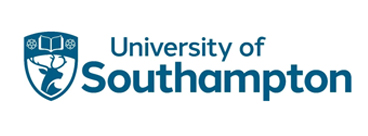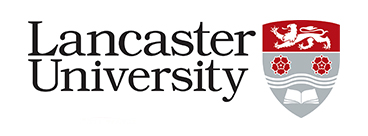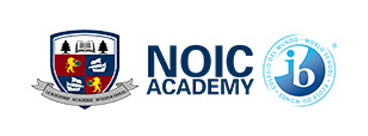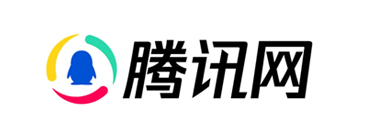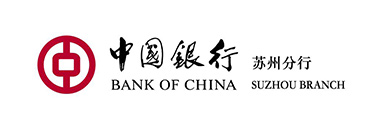梦想进入美国TOP名校攻读经济学硕士?在您埋头苦读GRE、精心撰写个人陈述之前,有一个更基础、更关键的门槛需要跨越:先修课。
没错,与许多其他社科专业不同,经济学硕士本质上是一个高度量化的项目。招生委员会在审核您的材料时,首先会像检查清单一样,审视您的成绩单上是否具备他们要求的数学和经济学课程。这不仅是“推荐”,在大多数情况下,这是硬性要求。
一、核心基石——不可或缺的“三门数学课”
1、微积分 - 分析的语言
要求: 通常需要完整的三个学期序列,包括单变量微积分和多变量微积分。
为何重要? 现代经济学的核心是“最优化”。无论是消费者寻求效用,还是厂商追求利润,您都需要微积分这个工具来找到那个“最优解”。没有微积分,您将无法理解高级经济模型的推导。
2、线性代数 - 处理多元的利器
要求: 至少一个学期。
为何重要? 现实经济世界从来不止一个变量。当您学习计量经济学,处理包含多个自变量的回归模型时,矩阵和向量将成为最简洁高效的语言。线性代数是理解这些复杂模型的基础。
3、统计学与概率论 - 实证的基石
要求: 至少一个学期,但两个学期(先统计后概率)更为理想。
为何重要? 经济学不仅是理论,更是用数据验证理论的科学。计量经济学——经济学皇冠上的明珠——完全建立在统计学之上。您需要理解概率分布、假设检验和置信区间,才能踏入实证研究的大门。
二、专业基础——展示您的经济学直觉
掌握了数学工具后,您需要证明自己对这些工具的应用领域经济学有扎实的理解。
1、中级微观经济学
关键点: 这绝不再是初级课程中简单的供需曲线。它将大量运用微积分进行推导,深入探讨消费者理论、生产理论、市场结构等。这是所有硕士项目的核心课程,前置知识必不可少。
2、中级宏观经济学
关键点: 涵盖索洛增长模型、IS-LM模型、消费与投资理论等。它将为您提供分析整体经济运行的框架。
3、计量经济学入门(强烈推荐)
关键点: 虽然部分学校将其列为“推荐”,但拥有一门入门级的计量课程(内容通常包括回归分析基础)将是您申请材料中的一大亮点。它向招生官证明您不仅知道理论,还接触过如何用数据检验理论。
三、决胜高地——让您脱颖而出的“加分项”
如果您的目标是Top 20乃至Top10的项目(如杜克大学、芝加哥大学、哥伦比亚大学等),那么以下课程将成为您区别于其他申请者的关键。
更高级的数学课程
1、实分析/数学分析: 这是经济学博士申请的黄金标准,对于以博士为目标的硕士项目同样极具分量。这门课训练的是严谨的数学证明思维,而非计算能力。一个漂亮的实分析成绩,是您具备攻读博士学位潜力的最强信号。
2、微分方程 与 优化理论:在动态经济学、高级宏观和微观中非常有用,能显著减轻您硕士阶段的学习压力。
3、编程与数据处理能力
必备技能: Python、R语言 或 Stata。在当今的数据时代,能够熟练使用至少一种编程语言或统计软件进行数据分析,几乎已经成为默认要求。您可以通过选修课程、完成项目或在线证书来证明这一点。
常见院校经济学硕士先修课要求
1. Yale University
https://ide.yale.edu/prospective-students/frequently-asked-questions-faqs
Can I apply to the IDE Program without being an economics major?
Yes, you can and should! IDE prides itself to be open to any background as long as itis very analytical and you have the necessary mathematical ability. To apply to the
IDE program, an undergraduate economics major, while preferred, is not absolutelynecessary. However, as the IDE Program is purely a master’s in economics, we always take people with exceptional analytical and usually economics backgrounds. Most students we accept are students who have taken microeconomics,
econometrics, and macroeconomics. Additionally they have taken courses in multivariate calculus, probability and statistics, and we give preference to people who have had linear (matrix) algebra. Upon admission to the program, it may be required that a student take the “Math for Economists” course during the summer prior to beginning the program.
2. Columbia University
https://gsas.columbia.edu/degree-programs/ma-programs/economics
An undergraduate degree in economics is not required for admission to the MA program, but a strong background in undergraduate economics is highly recommended (principles of economics, intermediate microeconomics, and intermediate macroeconomics). Substantial training in college-level calculus and statistics is also recommended (multivariate calculus, linear algebra, and statistics). Applicants will be evaluated on the quality and breadth of their undergraduate preparation for the study of economics at the graduate level.
3. Washington University in Saint Louis
https://economics.wustl.edu/faq-masters-economics
What are the mathematics and statistics prerequisites?
Students are expected to be familiar with basic calculus, linear algebra, and probability and statistics. Students who do not have a sufficient background in mathematics and statistics can still apply to the program but may have to adjust their coursework to fulfill formal requirements. For examples of formal course prerequisites, you can look at the course descriptions of Math 132 (Calc II), Math 2200 (Probability and Statistics), and Econ493. Students in the AM program can take Econ 493 in their first semester of residence.
4. New York University
MA in Economics
https://as.nyu.edu/departments/econ/graduate/ma/faq.html#admissions.html
WHO SHOULD APPLY?
Undergraduate Coursework
· Two calculus courses (or one calculus and one linear algebra course)
· One statistics course
· One econometrics course
· Intermediate Microeconomics and Intermediate Macroeconomics,
plus four other economics courses
5. Duke University
https://econ.duke.edu/masters-program/for-prospective-applicants
M.A. Economics
Candidates may be finishing a B.A./B.S., M.A./M.S., or have some professional experience. All our programs can be completed in 3 or 4 semesters. You should expect coursework to be highly rigorous and technical. An undergraduate degree in economics is not required for any of our programs; however, we do expect an understanding of basic economic principles. The only requirement is that entering students have a full calculus sequence (either calculus II or calculus III, depending on their undergraduate institution’s structure) prior to enrolling. International applicants should indicate corresponding courses in mathematics or mathematical economics.











